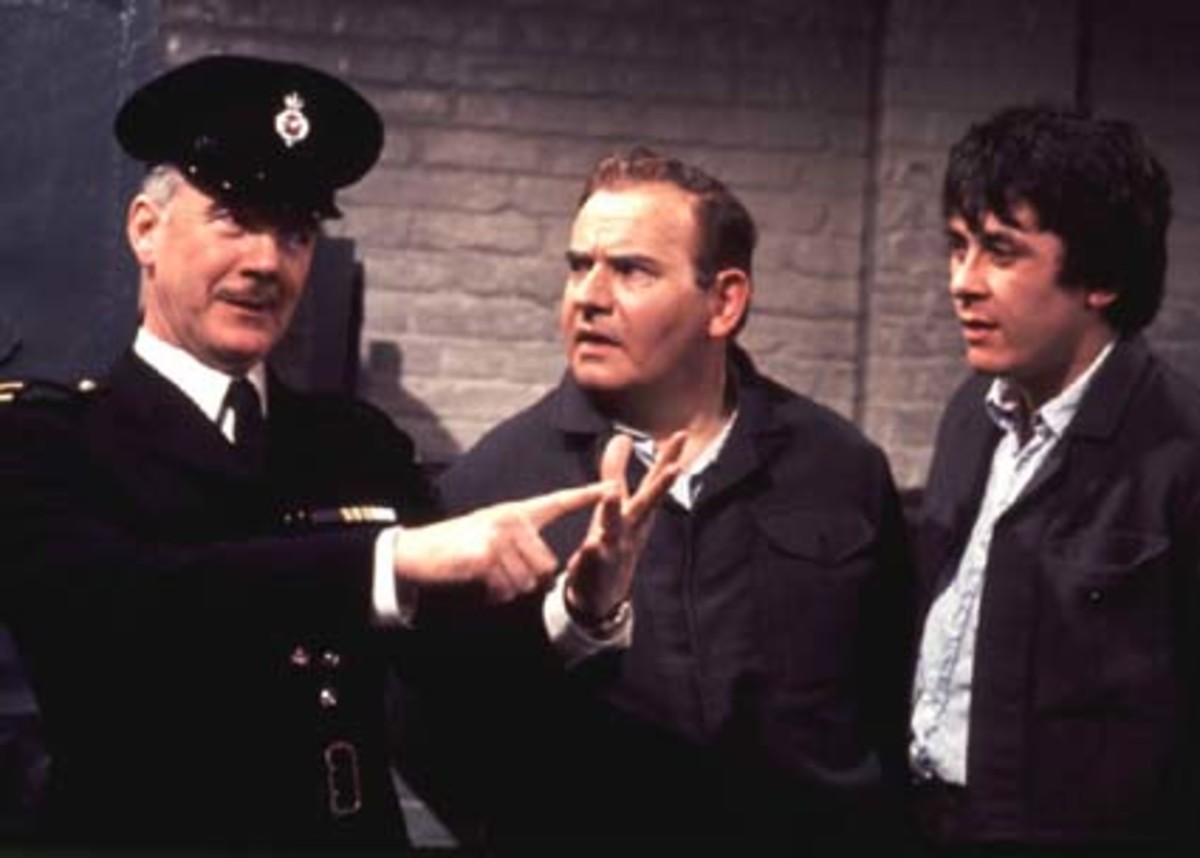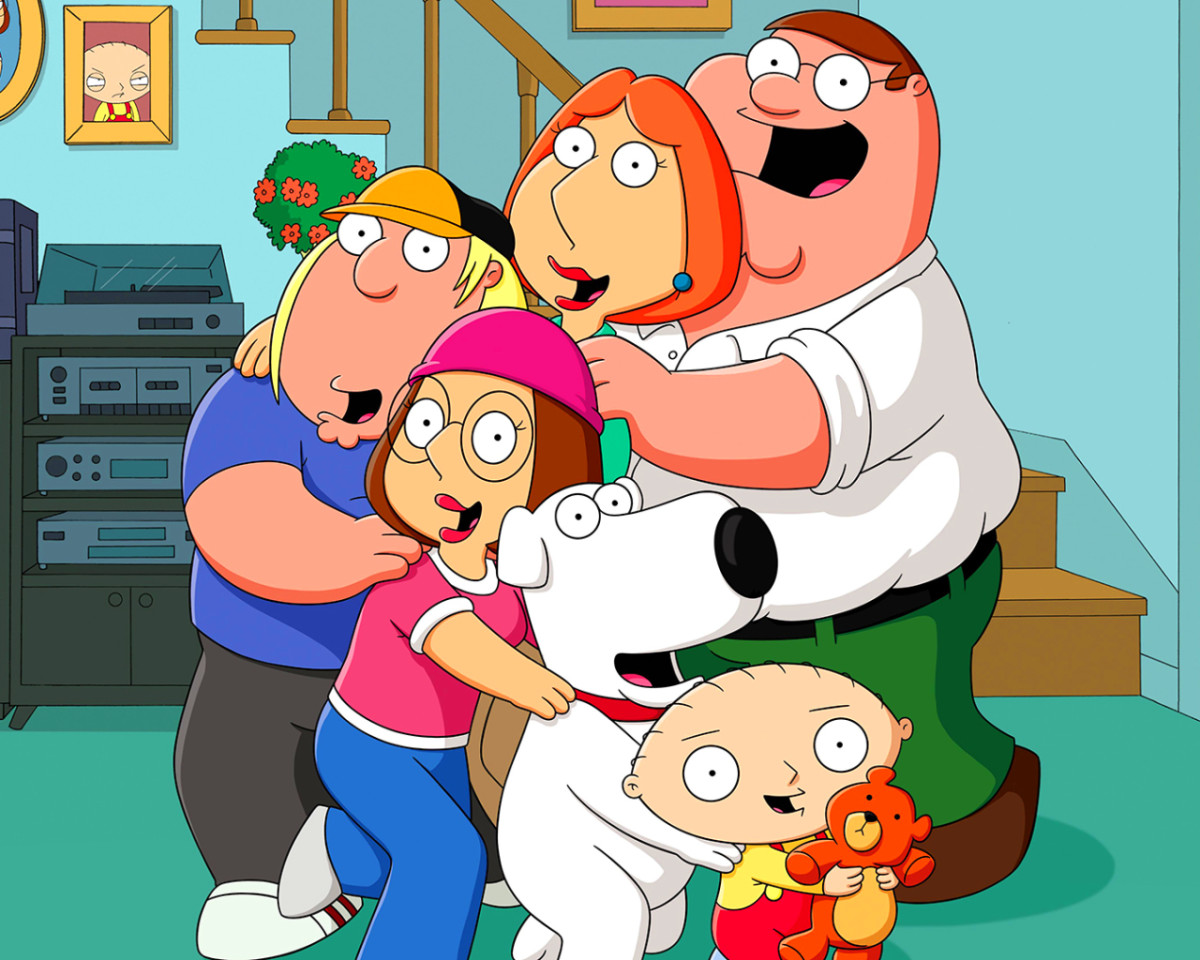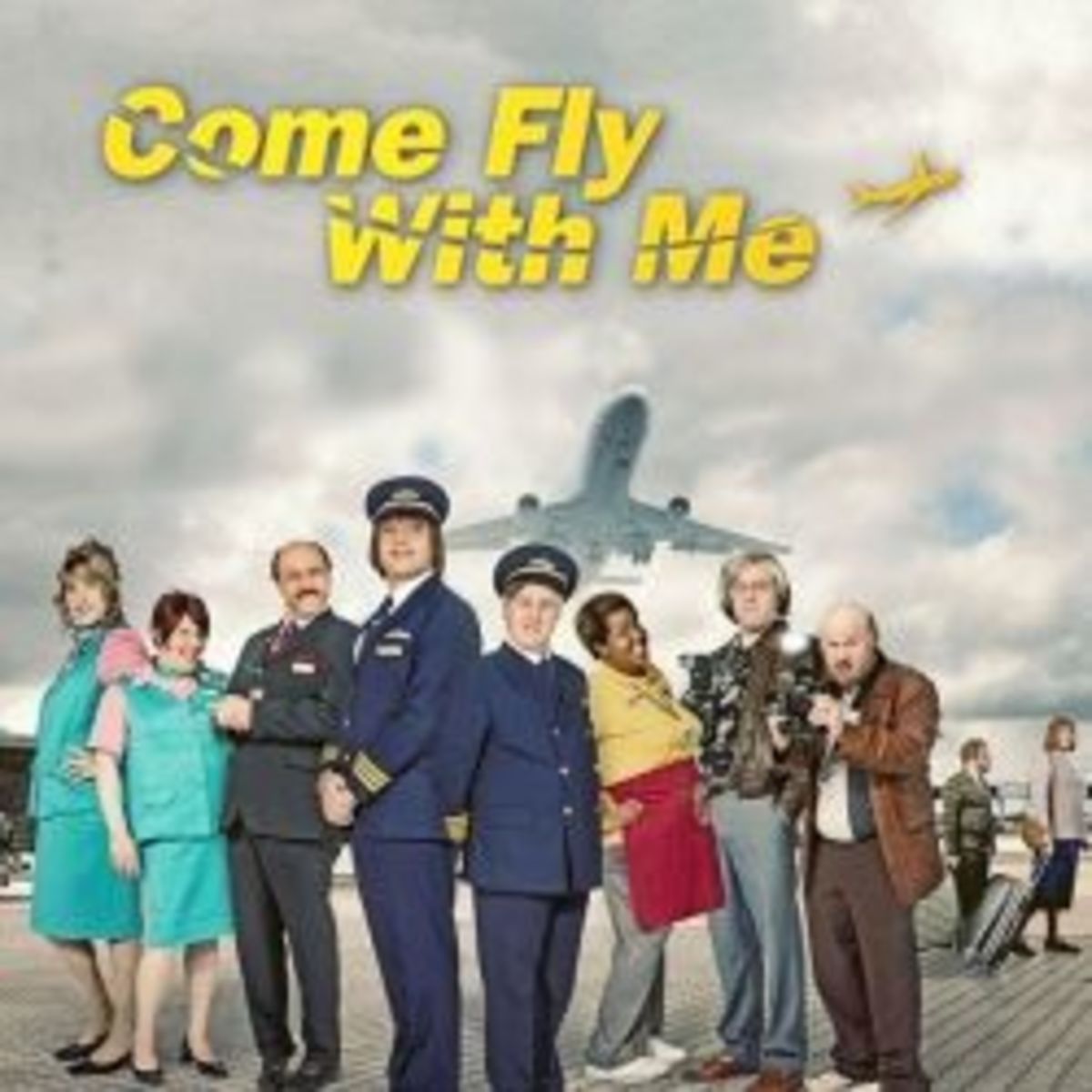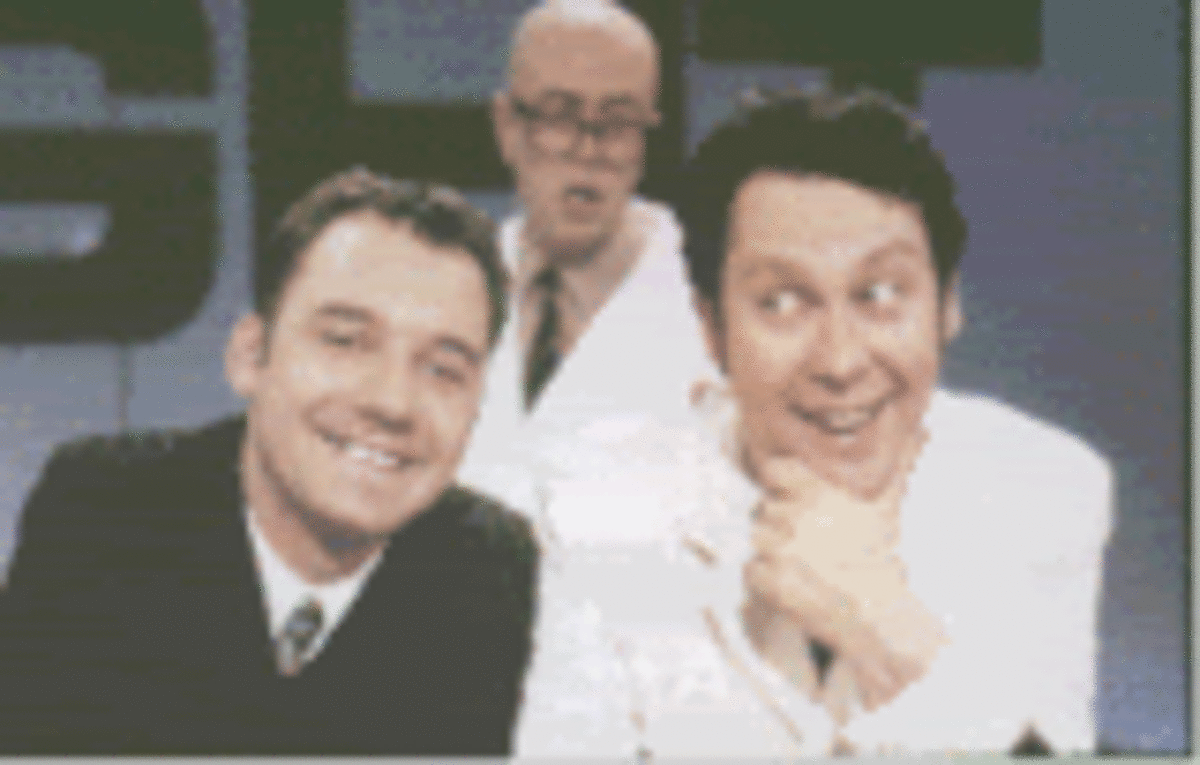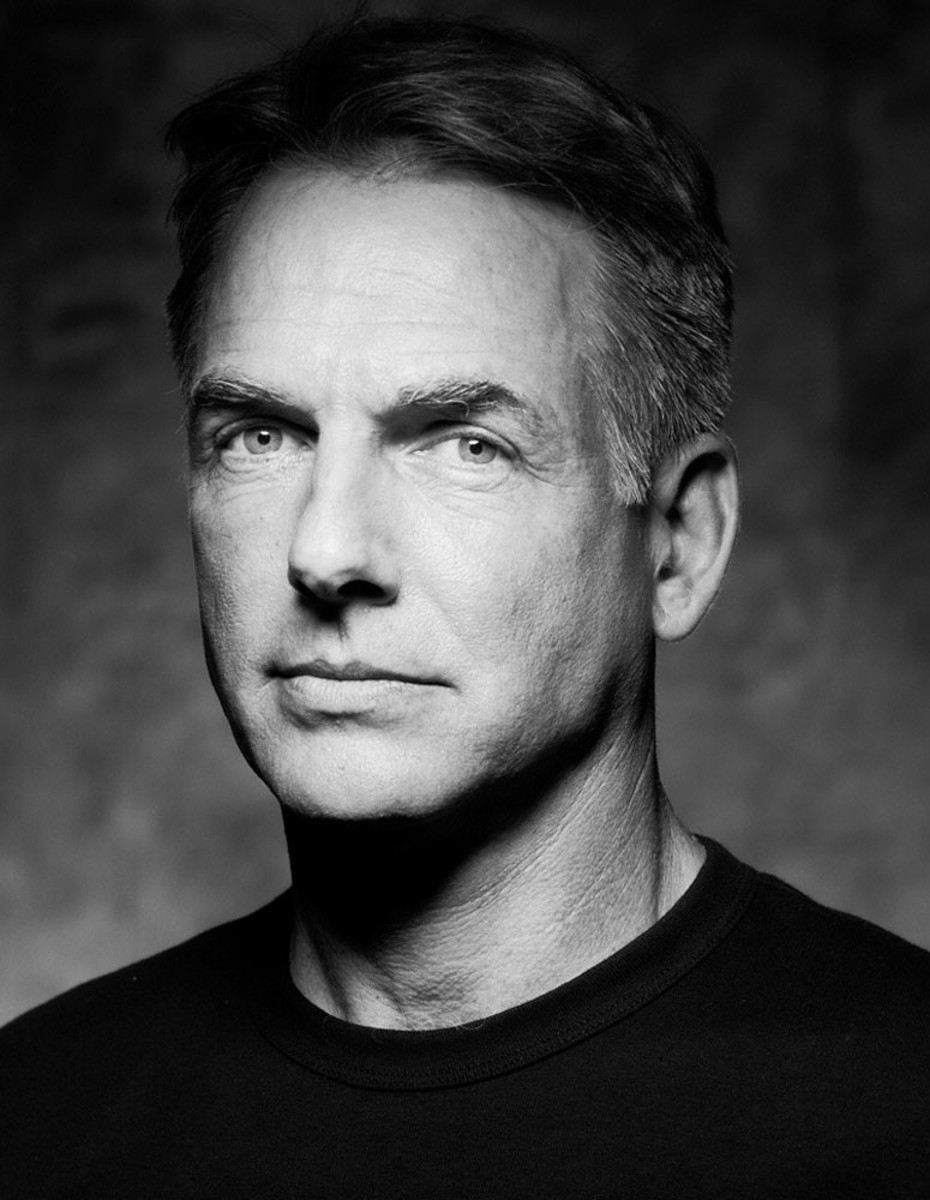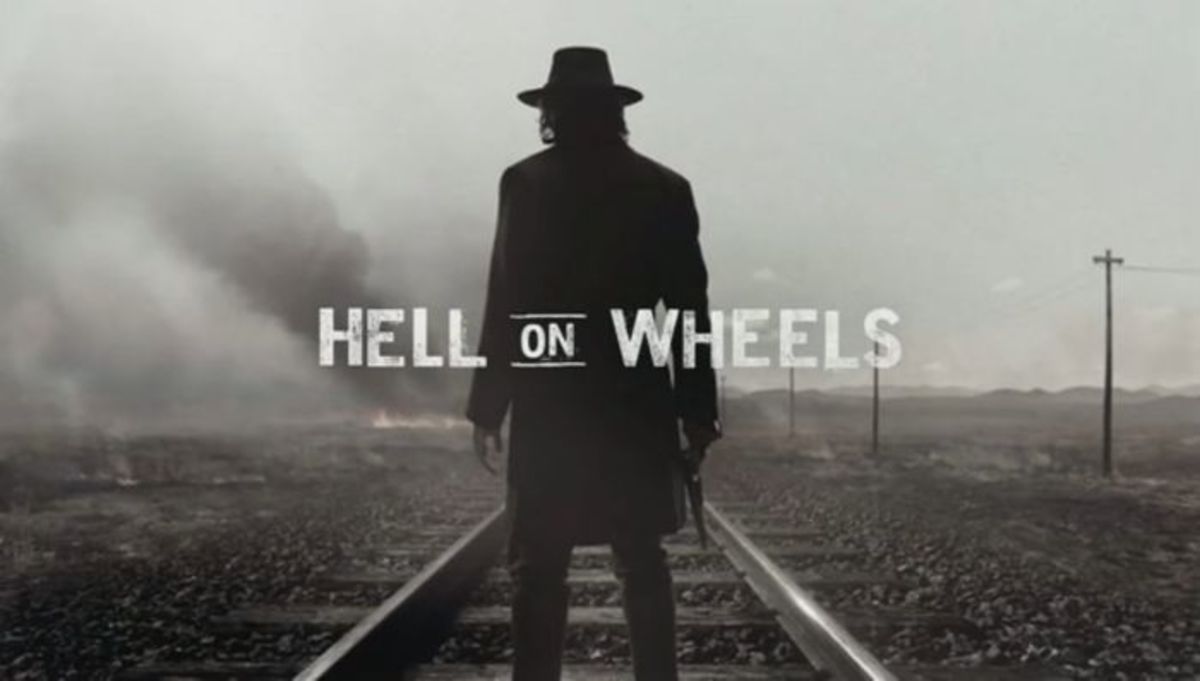10 Neglected British Comedy Series
Introduction
This article is aimed primarily at those interested in acquainting themselves with the riches of British television comedy. Generally there are two types of series the adventurous viewer will want to avoid: those that are too local in flavour to appeal to non-British (e.g. Only Fools and Horses) and those that are already very well known abroad (e.g. Fawlty Towers). The selections in this article are chosen to avoid both pitfalls.
15 Storeys High
If I had to choose a single thing that British comedies are perfect at doing, it would have to be the creation of truly misanthropic characters that are yet strangely pathetic. In the lineage of Basil Fawlty and Blackadder is Vince. Vince is a disturbed man who steals stories from others and retells them as his own, gets interior decorating ideas from pornographic magazines and pretends to know the people asked for by wrong number phone callers. He is consistently rude and insensitive, and presents a bleak worldview.
15 Storeys High begins with Vince taking a roommate in his apartment, his polar opposite the naïve and gentle pushover Errol. The comedy is character-drive, generated from the bizarre situations these extreme personalities get themselves into as well as how they react to one another. Punctuating the storylines of Vince and Errol are bizarre vignettes of other residents of the apartment block that rarely have any connection to the main narrative and that rarely have a punchline.
Charlie Brooker's Screenwipe
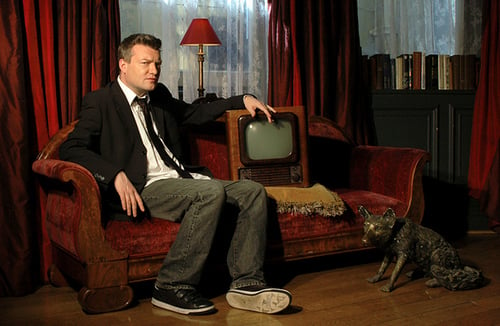
Without a doubt the most important, intelligent series on British television, Charlie Brooker's Screenwipe is a television show all about television. Much of Screenwipe consists in Brooker's hilarious analyses of individual television series as well as current trends in television. His commentaries on shows he dislikes are harsh, acerbic, downright rude, but highly witty. Occasionally Brooker arranges amusing tableaux of how television works behind-the-scenes, usually culminating in a fellatio joke or two. While much of the television covered is British television, American television will sometimes be covered; and there is an episode dedicated just to American television.
Update: Since first writing this article, Brooker has supplemented Screenwipe with Newswipe. Newswipe is conceptually the same as Screenwipe. Brooker turns a critical eye to how news programs represent the latest news stories not to illuminate the stories but to illuminate the ridiculous processes of newscasting. Brooker finds much absurdity; hilarity ensues.
Big Train
From the writers behind the popular series Father Ted comes this much wittier and more subtle sketch comedy, with the now-familiar-to-Americans face of Simon Pegg (Shaun of the Dead) in the cast. Rather than dealing in punchlines, Big Train presents one bizarre, sometimes surreal, situation after another, drawing comedy from the understated: A group of hypnotists who can't make a woman quite smoking call in an evil hypnotist for help; an intergalactic tyrant, based on Ming the Merciless, relaxes at home, watches TV, cleans up; an Antiques Roadshow appraiser overvalues trinkets to seduce the old women who brought them. The first season also includes an on-going staring contest championship complete with commentators.
The Day Today
The Day Today is a surrealistic fake news show that makes up absurd stories, reports on the mundane, tricks people on the street into giving disturbing opinions, and generally satires various news tropes--such as the graphics-gone-wild approach of modern news and the aggressive anchorman. Combined with the audacious, over-the-top nature of some of the stories is the understated dialogue that will slip by the unattentive.
The Day Today is the ideal entry into the comedy of two of the most important comedy writers in Britain, Chris Morris and Armando Iannucci. Where Iannucci has become more mainstream, with his recent film In the Loop, Morris has developed an idiosyncratic style of dark comedy that reached its perfection in Jam. The Day Today also happens to have introduced the character of Alan Partridge, around whom an entire series--and a successful one--has been crafted.
Garth Marenghi's Darkplace
Garth Marenghi's Dark Place is simultaneously both very smart and very silly. This is perhaps due to the series' multiple levels of narrative. The main narrative regards the twenty year anniversary of a fictional television series called "Darkplace" written by a self-important horror fiction writer (a parody of authors like Stephen King) named Garth Marenghi and produced by his agent Dean Lerner--both of whom star in the series--which occasions a retrospective and re-airing of the episodes. This retrospective includes introductions to the episodes by Marenghi and some occasional interviews.
Taking up most of the screentime, however, are the episodes of Darkplace themselves. Exaggerations of awful '80s television, each episode features extraordinarily bad acting (particularly Dean Lerner's), ludicrous plots, politically incorrect behaviour and dialogue, continuity errors galore and an overall sense of the cheap and contrived. One might expect this concept to lose its novelty after the first episode or two, but every episode exceeds the last, pushing the boundaries further; and with only six episodes in the series, it doesn't have time to become stale.
Snuff Box
Midway between sketch comedy and sitcom, Snuff Box concerns the lives of two hangmen, friends, members of an excluve hangmen's club, and devoted misanthropes, one American (Rich Fulcher) and the other, his boss, British (Matt Berry, who can also be seen in Garth Marenghi's Darkplace). The series consists of mostly unconnected sketches in which these characters find themselves in bizarre situations, like getting beaten by shop attendants for trying to buy silver cowboy boots. Some situations recurr, such as making light of their hangings, offending old men in the hangman's club, Matt offering to help women then breaking their stuff when they mention a boyfriend. Snuff Box is highly recommended for those with a darker sense of humor and a taste for alternative comedy.
How Do You Want Me?
Irish standup comedian Dylan Moran's first comedy series is the dramedy How Do You Want Me?, in which Moran plays a cityboy who marries a countrygirl (Charlotte Coleman) and moves with her back to the country. Comedy derives from the open hatred Moran's father-in-law (Frank Finlay), an important man in the village, bears for him, Moran's uninhibited rudeness, and the inept attempts of Moran to integrate himself into the country lifestyle. Added to this is Mark Heap (who can be seen in Big Train) as the coworker and still-in-love ex-boyfriend of Moran's wife and Peter Serafinowicz (the voice of Darth Maul) as her insane and bullyish brother.
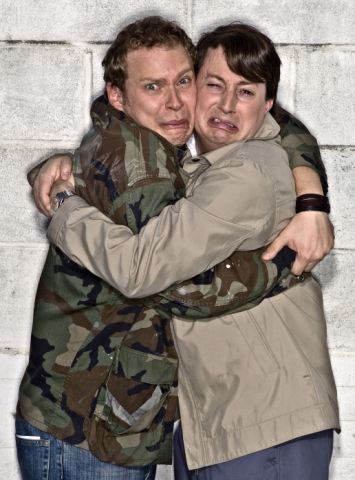
That Mitchell and Webb Look
That Mitchell and Webb Look is a sketch comedy series written and performed by David Mitchell and Robert Webb, who also make the very popular series Peep Show. However, I've decided to draw attention instead to That Mitchell and Webb Look, because it's less likely to be known to foreign audiences than Peep Show and also because it puts the Mitchell and Webb humour, sans storylines, much more sharply on display.
Highlights include the history of numberwang (an invented gameshow with incomprehensible rules), the Adventures of Angel Summoner and BMX Boy, and an incredibly rude elitist in a variety of guises who takes on modern informality with vicious monologues.
Respectable
While Respectable is what one might call a dramedy series with a heart, don't let that be a deterrant: this series has a sharp wit and is arguably quite tasteless. Michael, a meek man in a loveless marriage with no joy or excitement in his life decides to try a brothel. Too shy to ask for sex, he decides to just talk to the prostitute Hayley, with whom he falls in love. So Michael has to balance his desire to spend time with Hayley and his suburban, mundane life at home.
The peculiar cast of characters filling the brothel, such as Yelena the aggressive, Serbian prostitute, and the events that transpire behind the scenes, as it were, in the brothel provide amusement. In addition to this is Barry, a constant customer at the brothel, with whom Michael becomes a reluctant friend. In Barry's words, they are the "two whoresmen of the apussylips." Awkward moments provide some of the now-typical British humor more strongly on display in The Office.
Would I Lie to You?
Would I Lie to You? proves an excellent entry into the British panel show, a style of comedy series rather unique to Britiain. A series of celebrities, mostly comedians, are invited as guests on the series. Two team captains--both well-known comedians (in this case one of whom is David Mitchell, from Mitchell and Webb)--are present each time. The host then asks questions in a some contrived gameshow style games in which the objective is more to be funny than to actually win the game.
In the case of Would I Lie to You? the setup is to take unusual stories, some from current events and some from the lives of the guests and team captains, and have the teams try figure out which are lies. The setup and the attempts to figure out which are truths and which are lies generally allow hilarity to ensue: and indeed it does.
Other series of this nature worth looking into are the much more popular (and admittedly superior) Q.I. and the news-oriented Mock the Week and Have I Got News For You. Also recommended is Room 101, in which various comedians and C-list celebrities are invited to argue that various things they hate deserve to be placed in 'room 101' (i.e. removed from existence) while the host comedian makes light.
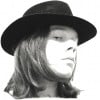

![Garth Marenghi's Darkplace [Region 2]](https://m.media-amazon.com/images/I/41pr73xYYBL._SL160_.jpg)

